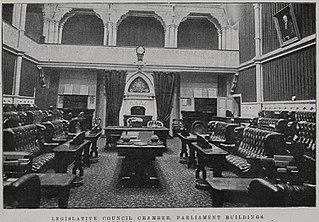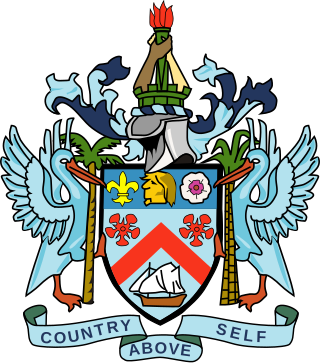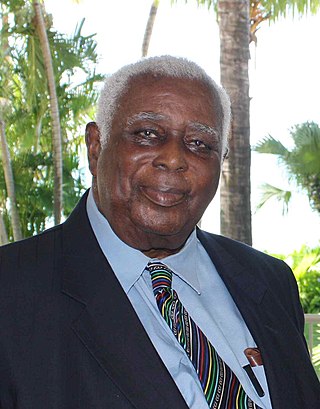| |||||
| Decades: | |||||
|---|---|---|---|---|---|
| See also: | |||||
Events from the year 2017 in Saint Kitts and Nevis
| |||||
| Decades: | |||||
|---|---|---|---|---|---|
| See also: | |||||
Events from the year 2017 in Saint Kitts and Nevis
| | This section needs expansion. You can help by adding to it. (March 2017) |


Saint Kitts and Nevis, officially the Federation of Saint Christopher and Nevis, is an island country and microstate consisting of the two islands of Saint Kitts and Nevis, both located in the West Indies, in the Leeward Islands chain of the Lesser Antilles. With 261 square kilometres (101 sq mi) of territory, and roughly 50,000 inhabitants, it is the smallest sovereign state in the Western Hemisphere, in both area and population, as well as the world's smallest sovereign federation. The country is a Commonwealth realm, with Charles III as King and head of state. It is the only sovereign federation in the Caribbean.

Saint Kitts, officially Saint Christopher, is an island in the West Indies. The west side of the island borders the Caribbean Sea, and the eastern coast faces the Atlantic Ocean. Saint Kitts and the neighbouring island of Nevis constitute one country: the Federation of Saint Kitts and Nevis. Saint Kitts and Nevis are separated by a shallow 3-kilometre (2 mi) channel known as "The Narrows".
Government House is the name of many of the official residences of governors-general, governors and lieutenant-governors in the Commonwealth and British Overseas Territories. The name is also used in some other countries.

The provinces of the Colony of New Zealand existed as a form of sub-national government. Initially established in 1846 when New Zealand was a Crown colony without responsible government, two provinces were established. Each province had its own legislative council and Governor. With the passing of the New Zealand Constitution Act 1852 the provinces were recreated around the six planned settlements or "colonies". By 1873 the number of provinces had increased to nine, but they had become less isolated from each other and demands for centralised government arose. In 1875 the New Zealand Parliament decided to abolish the provincial governments, and they came to an end in November 1876. They were superseded by counties, which were later replaced by territorial authorities.

The British West Indies (BWI) were colonised British territories in the West Indies: Anguilla, the Cayman Islands, Turks and Caicos Islands, Montserrat, the British Virgin Islands, Antigua and Barbuda, The Bahamas, Barbados, Dominica, Grenada, Jamaica, Saint Kitts and Nevis, Saint Lucia, Saint Vincent and the Grenadines, British Guiana and Trinidad and Tobago. Other territories include Bermuda, and the former British Honduras. The colonies were also at the centre of the transatlantic slave trade, around 2.3 million slaves were brought to the British Caribbean. Before the decolonisation period in the later 1950s and 1960s the term was used to include all British colonies in the region as part of the British Empire. Following the independence of most of the territories from the United Kingdom, the term Commonwealth Caribbean is now used.

Dame Sian Seerpoohi Elias is a New Zealand former Government official, who served as the 12th chief justice of New Zealand, and was therefore the most senior member of the country's judiciary. She was the presiding judge of the Supreme Court of New Zealand and on several occasions acted as administrator of the Government.

The governor-general of Saint Kitts and Nevis is the representative of the monarch of Saint Kitts and Nevis, currently King Charles III. The appointed governor-general, currently Marcella Liburd, lives in Government House, Basseterre, which serves as her official residence.

The New Zealand Legislative Council was the upper house of the General Assembly of New Zealand between 1853 and 1951. An earlier arrangement of legislative councils for the colony and provinces existed from 1841 when New Zealand became a colony; it was reconstituted as the upper house of a bicameral legislature when New Zealand became self-governing in 1852, which came into effect in the following year.
The Nevis Reformation Party is a Nevis-based political party in Saint Kitts and Nevis. The party currently holds none of the eleven seats in the National Assembly. It is the official opposition party on Nevis, holding two of five seats in the Nevis Island Assembly after losing to the CCM in the 2022 election. Since 2020, the NRP has been led by businesswoman and environmental consultant Janice Daniel-Hodge, the first female to lead a political party in the country and daughter of former Premier of Nevis Simeon Daniel.
The following lists events that happened during 1958 in New Zealand.
The following lists events that happened during 1960 in New Zealand.
The following lists events that happened during 1974 in New Zealand.

Sir Anand Satyanand, is a former lawyer, judge and ombudsman who served as the 19th Governor-General of New Zealand from 2006 to 2011.

The monarchy of Saint Kitts and Nevis is a system of government in which a hereditary monarch is the sovereign and head of state of Saint Kitts and Nevis. The current monarch of Saint Kitts and Nevis, since 8 September 2022, is King Charles III. As sovereign, he is the personal embodiment of the Crown of Saint Kitts and Nevis. Although the person of the sovereign is equally shared with 14 other independent countries within the Commonwealth of Nations, each country's monarchy is separate and legally distinct. As a result, the current monarch is officially titled King of Saint Christopher and Nevis and, in this capacity, he and other members of the royal family undertake public and private functions domestically and abroad as representatives of Saint Kitts and Nevis. However, the King is the only member of the royal family with any constitutional role.
Afro-Kittitians and Nevisians are Saint Kitts and Nevis people whose ancestry lies within the continent of Africa, most notably West Africa.

Sir Cuthbert Montraville Sebastian was the second governor-general of Saint Kitts and Nevis from 1996 to 2013. He was appointed Governor-General in 1995 and was sworn in on 1 January 1996. While in office, he was the world's oldest serving de facto head of state. His retirement was announced on 25 December 2012 and became effective on 1 January 2013.

Sir Samuel Weymouth Tapley Seaton, was the fourth governor-general of Saint Kitts and Nevis from 2015 to 2023.
Auckland Hector was a Kittitian cricketer who played for the Leeward Islands and Combined Islands in West Indian domestic cricket. He played as a wicket-keeper.
Sir Probyn Ellsworth Inniss MBE was the Governor of Saint Christopher-Nevis-Anguilla from 1975 to 1980, and then, following the separation of Anguilla, the Governor of Saint Christopher and Nevis from 1980 to 1981.

The primary law governing Saint Kitts and Nevis nationality regulations is the Saint Christopher and Nevis Citizenship Act, which came into force on 28 February 1984.